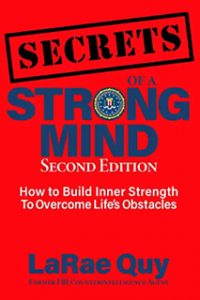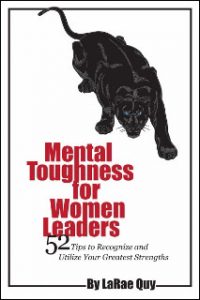Most of the FBI agents I worked alongside for 24 years would dismiss intuition as emotional and irrational. Yet we all relied upon it to make good decisions when confronted with the unknown.
For me, intuition was often sensing the direction of a furtive movement during an arrest, knowing that someone was still alive under rubble, or feeling that there was something awry in a suspect’s answer.
It’s not only FBI agents who need to harness the power of intuition. Investors find the stock market a crapshoot, entrepreneurs are surprised by unexpected advances by the competition, and business leaders can never count on the bottom line.
We have been conditioned to believe that conscious thought is more important than unconscious knowledge.
The rules and principles that guide instinct and intuition are unsophisticated but surprisingly accurate. Gerd Gigerenzer, a psychologist at the Max Plank Institute for Human Development in Berlin, makes an important point in his book “Gut Feelings: The Intelligence of Unconscious” when he argues that instinct and intuition are not impulsive—they have their own brain-based rationale.
Here are 4 ways you can use intuition to make better decisions:
1. NOTICE NAGGING FEELINGS
Start developing your intuition by paying attention to clues in noncritical situations. For example, image that you are talking to another person and they make a “throwaway” statement, something that seems to be an afterthought, maybe adding some additional details for no apparent reason. And yet, everything is for a reason.
Pay attention to what your gut instinct is telling you about your friend’s throwaway statement. It must have meant something or they wouldn’t have mentioned it. Follow up with your friend and ask for clarification; then see how accurate you were in reading your own intuition about the matter.
Many times we are so intimately familiar with the subject that we fail to notice a new clue. Be diligent and notice the niggling, small things that stick in your mind. That is your unconscious memory trying to bring something to your conscious attention.
How To Make It Work For You: Recall a time when you couldn’t get rid of a nagging feeling about someone or something. In retrospect, what was your unconscious trying to tell you? What did you do about it? Keep track of nagging feelings and notice when, and how, they helped you chose the best response.
2. PURSUE INFORMATION RIGOROUSLY
In my investigations, I had hunches. I couldn’t always explain why I thought pursuing a particular line of questioning would lead to results, but I trusted those instincts and went ahead.
Testing my hunch required a deep dive into the subject and the need to study numerous possibilities. As I continued, my gut instinct told me what was, or wasn’t, important.
Intuition requires you to do the legwork. You can’t sit in an armchair and expect to be enlightened by some mystical wave of understanding. The more you educate yourself about the subject, knowing the right answer becomes more about understanding what information is important and what can be discarded.
How To Make It Work For You: Intuition often shows up as a turmoil or disturbances in our mind. Hold back from making a decision based on these feelings until you’ve vigorously collected all the information you can about each and every “hunch.”
3. TEST YOUR ASSUMPTIONS
While you are holding back from making a decision, use this time to test the assumptions that support your hunches and gut instinct.
In my investigations, I asked myself how the assumptions I was making about each of my hunches might be wrong. This allowed me to logically look at all possible outcomes without bias. In other words, I didn’t weigh one course of action with more heft than another one.
We run into trouble with intuition when we become so attached to what we think is the right outcome that we dismiss other information that points to another conclusion.
How To Make It Work For You: Remain objective by testing the assumptions that support your intuition. If you’re correct, testing will only confirm you’re on the right path.
4. TRUST YOUR DOUBTS
Intuition that has been noticed (through nagging feelings), fed (by rigorous pursuit of information), and properly vetted (testing assumptions) will ultimately lead to something that is more concrete.
We’ve all experienced the feeling of doubt, apprehension, and even fear when it comes to following our gut.
Acknowledge these feelings because they are ways your subconscious is trying to tell you that something is there. You may not always be in a dangerous situation, but it’s important to notice when, and how, feelings come up so you recognize them when it does matter.
The key in developing intuition so you can make better decisions is to constantly explore and discover why you are experiencing feelings of doubt. You need to make better decisions so you can avoid unfavorable outcomes, but intuition must be followed by action. Otherwise, it remains nothing more than curiosity.
How To Make It Work For You: Intuition fails when it’s loaded with inaccurate information. Its not magical knowledge to be downloaded upon request. Roll up your shirtsleeves, do the work, and use your brain.
© 2017 LaRae Quy. All rights reserved.
You can follow me on Twitter, Facebook, Instagram, AND LinkedIn
Are you mentally tough? Here is my FREE Mental Toughness Assessment
Get my new book, “Secrets of a Strong Mind (second edition): How To Build Inner Strength To Overcome Life’s Obstacles”

Author of “Mental Toughness for Women Leaders: 52 Tips To Recognize and Utilize Your Greatest Strengths”





My intuition is usually loud – which I appreciate! However, it drives can drive people crazy that when I tune into something, I’ll dig and dig not only to back up my feeling but to have all the information. Then, when I’m questioned, I can say more than, “well, I had a feeling.” I’m definitely someone who values intuition and data and action. In the end, it does come down to our ability to trust ourselves. Sometimes all the digging doesn’t make a particular course of action clear and we need to move anyway. As always, I’m fascinated by your FBI experience. Thanks for giving us a glimpse!
Alli
I love how you go with your feeling and you are so correct—we need to trust ourselves!
Excellent thoughts here about trusting our intuition, LaRae!
I am a believer in listening to what my gut is saying to do. I don’t base my actions and reactions on pure feelings but I absolutely factor them in. When participants in a workshop offer deep seeded opinions I try to read what they are really saying. I look to their body language, facial expressions and tone to get to the real meaning of their comment. I aways dig further to get at the truth.
Thanks LaRae!
It’s so important to follow our gut and dig deeper. Too many people tend to think intuition is something that “just happens” but it’s the niggling feeling that just happens. The real work is sorting out assumptions…
Great article, as always, LaRae. Your experience is second to none on this subject. I think it’s a combination of head & heart, of left & right that is important. We can’t only listen to one side or we miss the nuances.
I agree, Skip Prichard, intuition is a stealth combination of emotions, thoughts, and behavior. I like your thoughts about taking into account both Left and Right because the nugget of intuition is the ability to weigh ALL information with equal heft, not just what we think we want to hear…